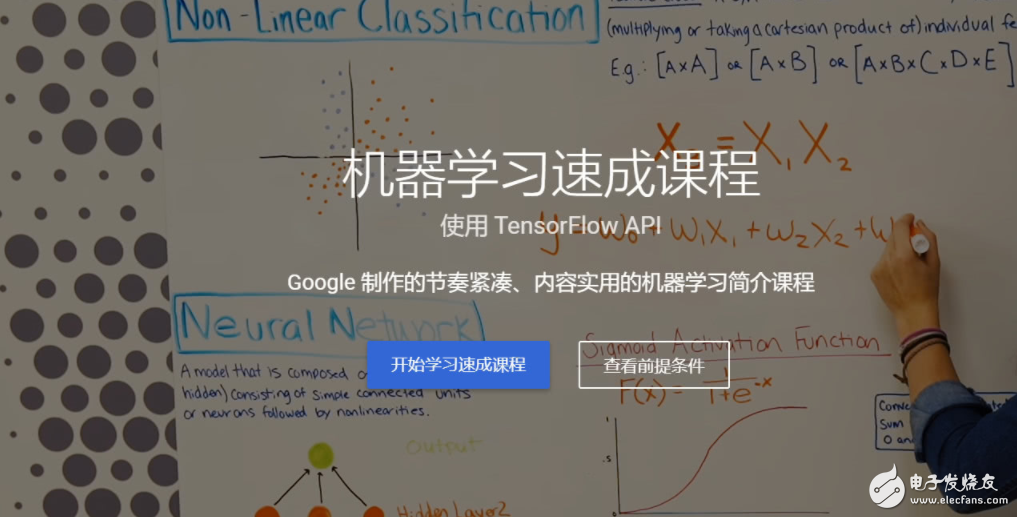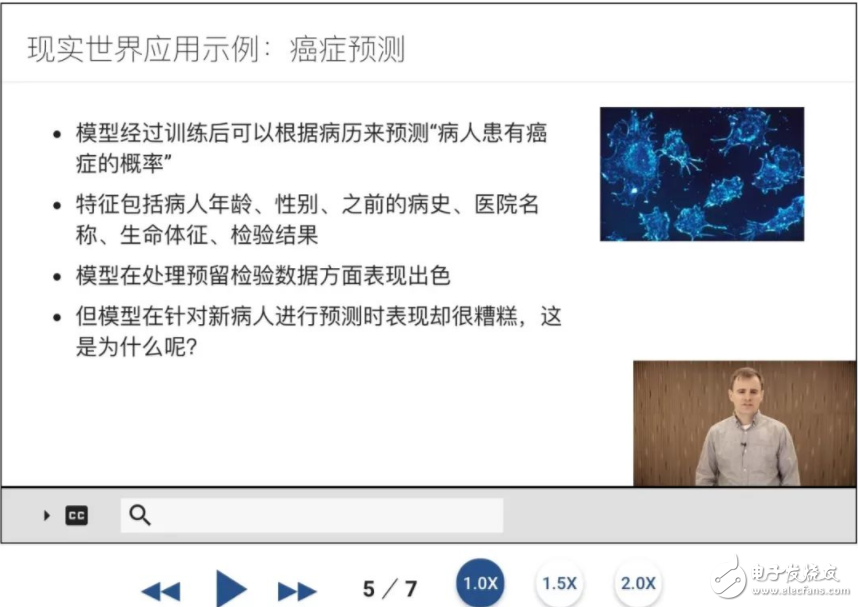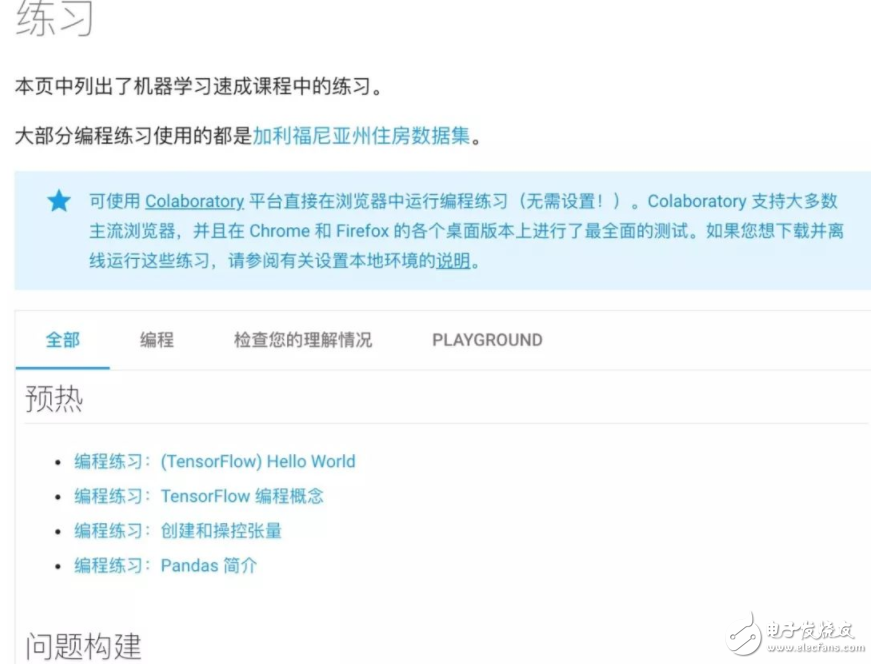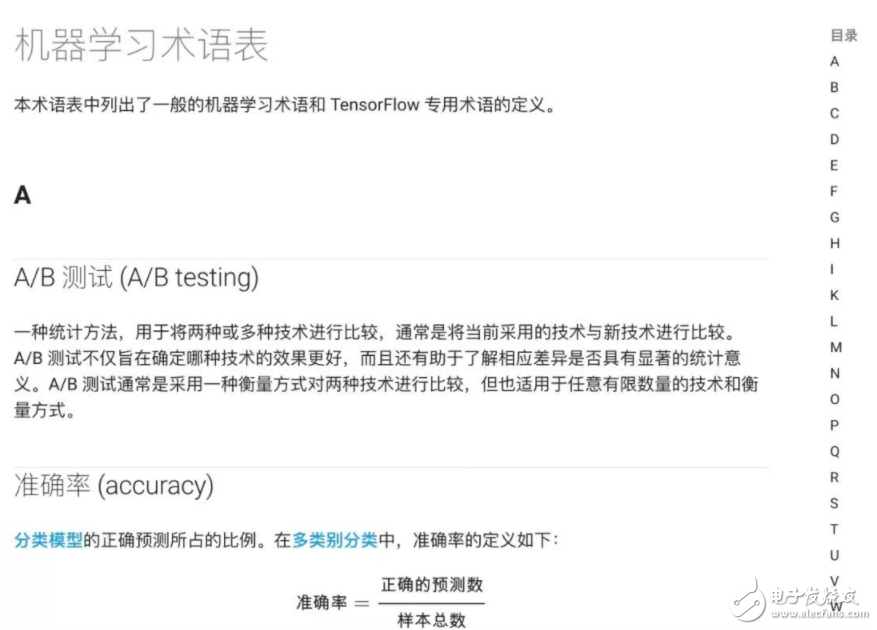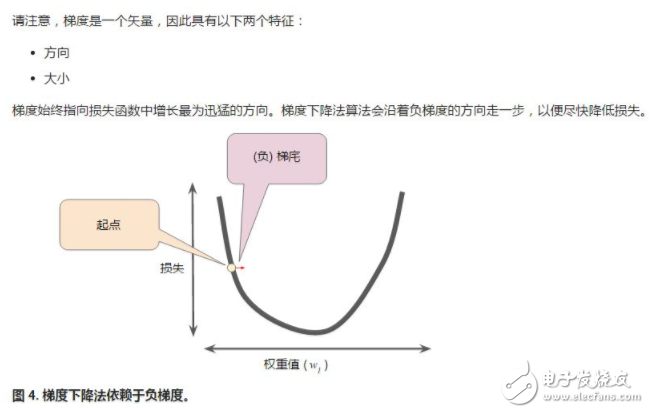As artificial intelligence develops faster and faster, machine learning has become a hot industry today, and machine learning seems to be an important technology with many unknown features. Today, Google is launching a TensorFlow-based machine learning crash course that includes a series of video lectures, practical case studies, and hands-on exercises. A self-study guide called Machine Learning Lovers. As machine learning gets more and more attention from the public, many beginners hope to quickly learn about machine learning and cutting-edge technology. Today, Google is launching a TensorFlow-based machine learning crash course that includes more than 40 exercises, 25 sessions, and 15 hours of compact learning. Google officially describes the self-study guide for machine learning enthusiasts, and the course materials are written in Chinese, and the course videos are relayed to Chinese audio by machine learning technology. This will be of great help to Chinese readers. Of course, we can also choose English pronunciation to learn content more accurately. In addition, according to the reporter, this was a course of internal training engineers at Google. Nearly 10,000 Google employees participated and learned what they used to optimize and enhance their products. Course address: https://developers.google.cn/machine-learning/crash-course/ As described in this course, the reader may need primary algebra knowledge such as variables and coefficients, linear equations, and function curves to understand the basic machine learning model. In addition, the reader also needs some Python programming experience, but generally only need the most basic function definitions, lists / dictionaries, loops and conditional expressions. The implementation of this course is based on Python and TensorFlow, but the reader does not need any TensorFlow knowledge before learning. In addition to the two basic requirements described above, the reader may need to prepare some basic knowledge. Of course, there is no problem when you actually encounter the data. In fact, the preparation work is mainly divided into three parts: mathematics foundation, programming foundation and function library. We provide readers with a collection of resource articles for journalists to check related issues. In mathematics, algebra-related variables, coefficients, linear equations, logarithms, and Sigmoid functions help the reader understand the most basic expressions of the model, including how to define the inference process, how to construct the loss function, and the activation function. Knowledge of linear algebra-related matrices and tensors helps the reader understand what the model represents in the calculation process. For example, matrix multiplication, such affine transformation, represents a linear combination or full connection of neurons in a neural network. Probability theory and statistics are also required, but this course only needs to know the concepts of mean, variance and so on. For calculus, we only need to understand the basic concepts of derivatives, partial derivatives, and chained rules. Although the optimization method requires a lot of mathematical knowledge to explicitly derive popular optimizer expressions, only the basic stage needs to be called. The tool will do. In terms of Python programming and common third-party libraries, there are very few requirements for this course, so you can master the basic operations. For example, Python's list, dictionary and tuple three data structures, as well as basic expressions such as loops and conditions. Third-party libraries that need to be understood are also representative of scientific computing, such as NumPy, Pandas, and Matplotlib. The following is a tutorial published by a journalist in 2017, which basically provides enough learning materials for readers. Introduction: Prerequisites and preparations Machine learning concept: Framework processing (15 minutes) supervised learning in machine learning Learn more about machine learning (20 minutes) What are loss functions, weights and biases? Reduced loss (60 minutes) two gradients and experiments on learning rates TensorFlow that you can't understand without using TensorFlow basic steps (60 minutes) Generalization (15 minutes) What is over-fitting, how to evaluate the quality of a model, and divide the data set into two parts: test and training. Training and test set (25 minutes) to verify the benefits of splitting the data set into two parts Verification (40 minutes) worried about overfitting? Get one more validation set outside of the test and training set Representation (65 minutes) feature engineering, 75% of machine learning engineers' time is doing Feature combination (70 minutes) to understand what is a feature combination, how to use TensorFlow to achieve Regularization: simplicity (40 minutes) L2 regularization, learning complexity and generalization Logistic Regression (20 minutes) Understanding Logistic Regression, Exploring Loss Functions and Regularization Classification (90 minutes) to evaluate the correctness and accuracy of a logistic regression model Regularization: other types of looseness (45 minutes) L2 Introduce the neural network (40 minutes) hidden layer, activation function Train the neural network (40 minutes) back propagation Multi-category neural networks (50 minutes) understand multi-class classifier problems, Softmax, implement Softmax results in TensorFlow. Embed (80 minutes) What is embedding, what is this, and how to use it. engineering: Production of ML system (3 minutes) width in ML production Static vs. Dynamic Training (7 minutes) Advantages and Disadvantages of Static and Dynamic Training Static vs. dynamic inference (7 minutes) advantages and disadvantages of static and dynamic inference Data dependency (14 minutes) Understanding data dependencies in ML The actual ML example in life: Predicting cancer (5 minutes) 18th century literature (5 minutes) Real world policy (2 minutes) in conclusion: The next step is to learn TensorFlow, Google's deep learning courses, and Kaggle competitions. Practice questions: The data for most of the exercises is the California housing data set. The test is divided into three, programming exercises, checking your understanding and Playground. Course characteristics The biggest feature of this machine learning crash course is that it has complete Chinese materials, Chinese voice and subtitles, and Chinese test questions. It provides the most practical information for beginners in machine learning. As shown below, the courseware provided by this course is very suitable for domestic beginners: As shown below, the course provides a number of Chinese exercises, including programming exercises and text-choice multiple-choice questions, which is very helpful for readers to examine the knowledge gained in videos and materials. The machine learning terminology is shown below, which is a comprehensive introduction to the meaning of terms in machine learning and is very understandable. Finally, the course also provides a lot of Chinese learning materials or technical blogs, which are also important guarantees to expand the reader's knowledge and learn new technologies in principle. Box Header Connector,Dual Row R-Type Box Header Connector,Box Header Straight Elevator Connector,Smt Box Header 2.0Mm Connector Dongguan Yangyue Metal Technology Co., Ltd , https://www.yyconnector.com

